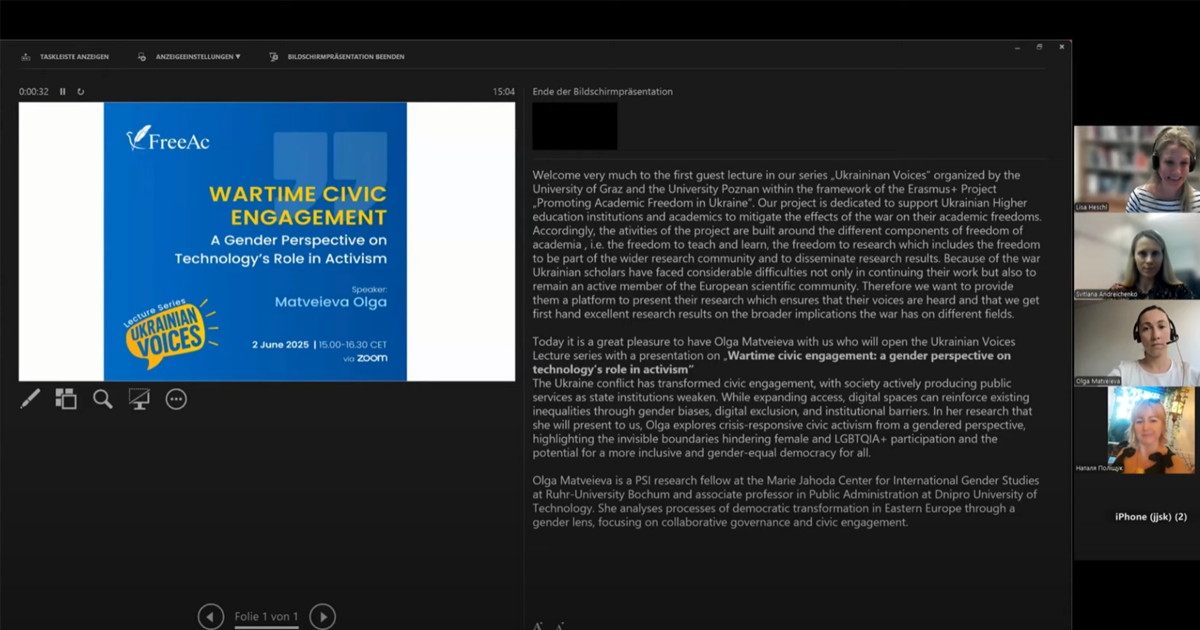The Ukraine conflict has transformed civic engagement, with society actively producing public services as state institutions weaken. As a young democracy, Ukraine has granted civil society greater freedom, though questions persist about power redistribution and participant equality. This lecture examines the intersection of technology, gender, and civic activism in wartime Ukraine, showing how digital tools create new participation avenues and strengthen democratic foundations. Technology enables marginalized groups, including women and LGBTQIA+ activists, to engage in service co-production, defense initiatives, and humanitarian response. While expanding access, digital spaces can reinforce existing inequalities through gender biases, digital exclusion, and institutional barriers. Ukraine’s civic sector shows a shift from welfare state reliance to shared responsibility, revealing entrenched issues like gender inequality and inadequate state responses to emerging needs. This lecture explores crisis-responsive civic activism from a gendered perspective, highlighting the invisible boundaries hindering female and LGBTQIA+ participation and the potential for a more inclusive and gender-equal democracy for all.
Olga Matveieva is a PSI research fellow at the Marie Jahoda Center for International Gender Studies at Ruhr-University Bochum and associate professor in Public Administration at Dnipro University of Technology. She analyses the processes of democratic transformation in Eastern Europe through a gender lens, focusing on collaborative governance and civic engagement.
PART.1
PART.2
PART.3
PART.4
PART.5

